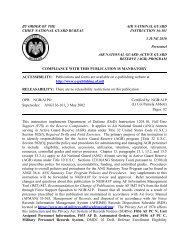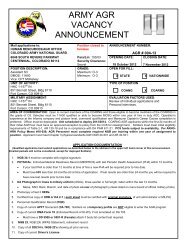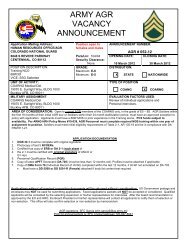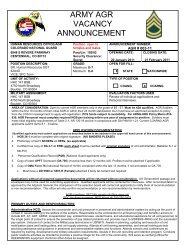Prosecuting Alcohol-Facilitated Sexual Assault - National District ...
Prosecuting Alcohol-Facilitated Sexual Assault - National District ...
Prosecuting Alcohol-Facilitated Sexual Assault - National District ...
You also want an ePaper? Increase the reach of your titles
YUMPU automatically turns print PDFs into web optimized ePapers that Google loves.
T HREE-STEP P R OCESS<br />
Prosecutors are often left with the victim’s word, which means that a<br />
jury must find the victim credible before they will convict the defendant.<br />
Jurors may be reluctant to convict on the victim’s word alone because<br />
they believe they need evidence to corroborate the victim’s testimony<br />
regarding the actual moment the rape occurred.This belief is so strong<br />
that a number of states have jury instructions advising jurors that the victim’s<br />
word need not be corroborated. 46 However, a prosecutor should not<br />
be discouraged when presented with a case where the primary evidence<br />
is the victim’s testimony. Although a prosecutor may be unable to present<br />
physical or other evidence to corroborate the victim’s testimony about<br />
the moment of the rape, the prosecutor can give context to the victim’s<br />
version of events, thereby allowing the jury to evaluate her credibility.<br />
The victim’s credibility can be broken down into five components: (1) actual<br />
credibility; (2) the victim’s ability to perceive at the time of the incident;<br />
(3) the victim’s ability to remember what happened; (4) the existence of<br />
corroborative evidence; and (5) the victim’s likeability.The first four factors<br />
are valid charging considerations; the fifth is not. However, victim likeability<br />
must be understood and recognized by law enforcement and prosecutors if<br />
they are to obtain a conviction; therefore it is discussed herein.<br />
Actual Credibility<br />
The first factor is actual credibility. A victim who was voluntarily intoxicated<br />
at the time of a rape may feel shame or self-blame for allowing<br />
herself to be placed in a risky situation. Consequently, she may be reluctant<br />
to reveal embarrassing details. As a result, she may appear to have<br />
something to hide. She may also become hostile and defensive in order<br />
to protect herself. Furthermore, a victim may withhold information she<br />
views as insignificant without realizing that it is critical to be truthful<br />
about every minor detail, regardless of how insignificant it may seem to<br />
her. In a case where the victim deliberately withholds information, lies<br />
about small details, or is inadvertently inaccurate, jurors will likely be<br />
reluctant to convict the defendant because they will be worried that a<br />
victim who lies about small details may be inclined to lie about the rape<br />
itself, especially when the law requires the jury to believe the prosecution’s<br />
case beyond a reasonable doubt.<br />
NDAA<br />
13
















